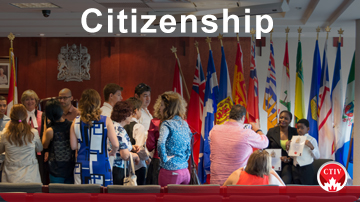Canada is one of the top choices of international students for education owing to its multicultural society, high academic standards, affordability, exiting campus lifestyles and world-class education among many other attributes.
Introduction
Canada's immigration system uses a points-based system to assess candidates for permanent residence. The Express Entry system manages applications for three of Canada's main economic immigration programs - the Federal Skilled Worker Program, the Federal Skilled Trades Program, and the Canadian Experience Class.
To qualify for permanent residence through Express Entry, candidates must earn 67 points or more based on their skills, education, work experience, language ability, and other factors that help predict their potential for economic success and integration in Canada. This 67 point threshold ensures Canada welcomes immigrants who can contribute significantly to the labor market and economy.
The Comprehensive Ranking System awards points across several categories like age, education, language ability, Canadian work experience, and credentials like a valid job offer or provincial nomination. While a job offer or nomination are not mandatory, they can give candidates a big boost in points.
This guide will break down the key factors considered in the Comprehensive Ranking System and how many points are allocated to each. With strategic planning, it is possible for many skilled immigrants to achieve 67+ points and successfully apply through Express Entry.
Age
Age is a factor in Canada's points-based immigration system. Younger applicants are awarded more points up to a maximum at age 29.
The rationale is that younger skilled workers have a greater chance to integrate and contribute to Canada over a longer working lifespan. The most points are given to applicants who are likely to participate in the labor force for a longer period.
Canada seeks to attract young, educated applicants who can help drive economic growth. Awarding the most points for younger applicants is designed to select immigrants with the greatest potential economic benefit to the country.
Education Level Points
Your education level is an important factor that contributes to your points score in Express Entry. Higher education results in more points, with the maximum points awarded for having a doctoral degree.
The more advanced your education, the more points you will be awarded in your Express Entry profile. Even if you do not have higher education, you can still be eligible, but master's and doctorate degrees will significantly improve your points score. Education level is an important human capital factor assessed in the Comprehensive Ranking System.
Official Languages
One of the key factors for scoring points under the Express Entry system is fluency and proficiency in either English or French. Candidates can score points based on the following:
Maximum points for language ability requires high scores on English or French tests, proficiency in both languages, and educational credentials in either language. Fluency in Canada's official languages demonstrates strong adaptability and integration capabilities.
Canadian Work Experience
Verifiable skilled Canadian work experience can be a major factor in helping skilled immigrants gain points under the Express Entry system.
Applicants are awarded points based on the amount of full-time (or equivalent part-time) skilled work experience they have in Canada. The work experience must be within the last 10 years in a skilled position (NOC 0, A, or B).
The maximum points awarded for Canadian work experience is 100 points. Applicants are awarded:
To get Canadian work experience points, applicants must provide documents proving their skilled work history in Canada, such as work contracts, pay stubs, T4 tax records, employment confirmation letters, etc. The work experience must also match the job duties and skill levels of the NOC code specified.
Gaining multiple years of skilled Canadian work experience can greatly improve an applicant's ranking under the Express Entry CRS points system. It demonstrates ties to Canada and the ability to successfully integrate and contribute to the Canadian labor market.
Spouse Factors
Your spouse's education, language skills, and work experience can contribute additional points to your Express Entry profile.
Having a spouse with strong education credentials, language ability, and/or Canadian work experience can significantly boost your overall CRS score. If your spouse lacks these attributes, they may want to consider pursuing higher education, language training, or skilled work experience in Canada before you apply for permanent residence. A higher scoring spouse can make a big difference in being invited to apply.
Sibling in Canada
Having a sibling who is a Canadian citizen or permanent resident and is settled in Canada can help you earn up to 15 extra points towards your Express Entry score.
To claim these sibling points, your sibling must meet certain criteria:
If you have a sibling meeting these requirements, you can claim:
Having a sibling settled in Canada can demonstrate your likelihood to stay in Canada long-term. It also shows you have family ties and support systems in Canada that can help your integration into Canadian society.
When claiming sibling points, you will need to provide documentation proving your relationship such as birth certificates. Contact information must also be provided to allow IRCC to verify your sibling's status in Canada.
The sibling points can make a meaningful difference in increasing your overall CRS score. So if you have a brother, sister, step-sibling or half-sibling permanently settled in Canada, be sure to factor this into your Express Entry profile.
Provincial Nomination
A provincial nomination is one of the best ways to increase your points and chances of landing permanent residency in Canada. Here's how it works:
Each province and territory in Canada has the ability to nominate individuals for permanent residence through the Provincial Nominee Program (PNP). The PNP allows provinces to nominate newcomers who will meet specific labour market needs and contribute to economic growth.
If you receive a provincial nomination certificate, you get a whopping 600 points toward your Express Entry profile. This essentially guarantees you will receive an Invitation to Apply (ITA) in the next draw, since the minimum points threshold is usually around 470 points.
A provincial nomination is highly valued because it signals to the federal government that a province sees you as someone who can economically establish themselves and fill labour gaps. It shows you have strong ties and high potential to thrive in that province.
Some of the more popular PNP streams include the Ontario Human Capital Priorities Stream, BC Provincial Nominee Program Tech Pilot, and Alberta Immigrant Nominee Program. Each PNP has its own eligibility criteria based on skills, work experience, age, language ability and other factors.
So in summary, a provincial nomination certificate adds a massive 600 points to your Express Entry profile, and virtually assures that you'll get an ITA and land PR status in Canada. It's one of the best ways to fast track your Canadian immigration dreams.
Job Offer
Points may be allocated if you have a valid job offer from a Canadian employer. The number of points allocated depends on the National Occupational Classification (NOC) level of the job offer:
A valid job offer must be:
For regulated professions (i.e. medical doctors), having a license to practice in Canada also gives 200 points.
Having a valid job offer can significantly improve your chances of securing enough points to qualify for permanent residence under the Express Entry system. A skilled worker NOC 00 job offer gives 200 points, enough on its own to guarantee an invitation to apply in a subsequent draw. NOC 0, A or B offers gives 50 points, which can help improve your ranking and chances of being invited to apply.
Conclusion
Immigrating to Canada is an exciting opportunity, but also requires dedication and preparation to maximize your points under the Express Entry system. From improving your language skills to gaining skilled work experience, applicants should carefully calculate which factors will give them the most points.
Using the 67 points calculator allows you to model different scenarios and combinations of criteria. Focus on the areas that give you the largest point gains for your effort. For example, improving to professional-level fluency in English or French provides a big boost. Or gaining skilled work experience in Canada can be very worthwhile.
Gaming the system won't get you very far, as Express Entry aims to select candidates most likely to economically establish themselves in Canada. Becoming your best candidate does take time and strategic planning. Start early, target your efforts carefully, and use the 67 points calculator often to chart your progress. The rewards of immigrating to one of the best countries in the world will make it worthwhile.
Use the 2023 Express Entry 67-point calculator to estimate your CRS score for Canada immigration based on key criteria.
Disclaimer: The information presented in this article serves as general guidance and does not constitute personalized advice. Sanjay Prasher (SP), M.B.A, and Member of the College of Immigration and Citizenship Consultant (CICC), is a distinguished professional associated with one of the best immigration consulting firms in North York, Toronto, and Brampton, Canada. While Canadian Title Immigration and Visa Consulting Inc. strives to provide accurate and updated information, this disclaimer emphasizes that the firm, led by Sanjay Prasher, is among the top-rated immigration law firms in North York, Toronto, and Brampton. However, individuals are strongly encouraged to seek tailored advice from the best immigration consultants in North York, Toronto, Brampton, for their specific situations. The firm and Sanjay Prasher are not liable for any losses or damages arising from the use of the information provided. It is advisable to consult directly with the best immigration consultants for precise and personalized guidance.

Canada is one of the top choices of international students for education owing to its multicultural society, high academic standards, affordability, exiting campus lifestyles and world-class education among many other attributes.

Obtaining and applying for Canadian citizenship can be a long and labour-intensive process as law changes very fast. We keep you posted on citizenship application requirements. We are your Citizenship application process immigration consultant.